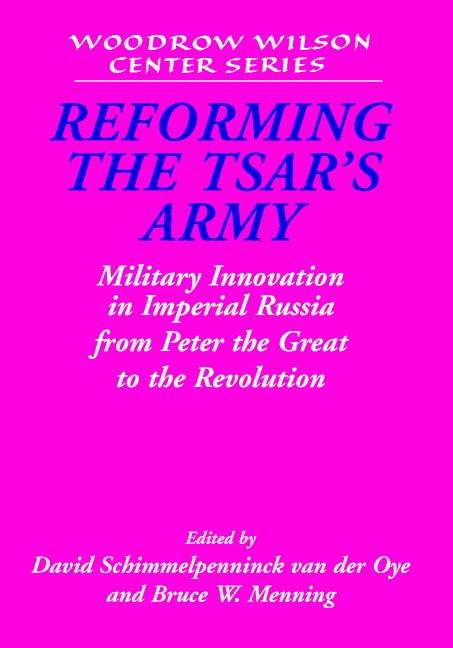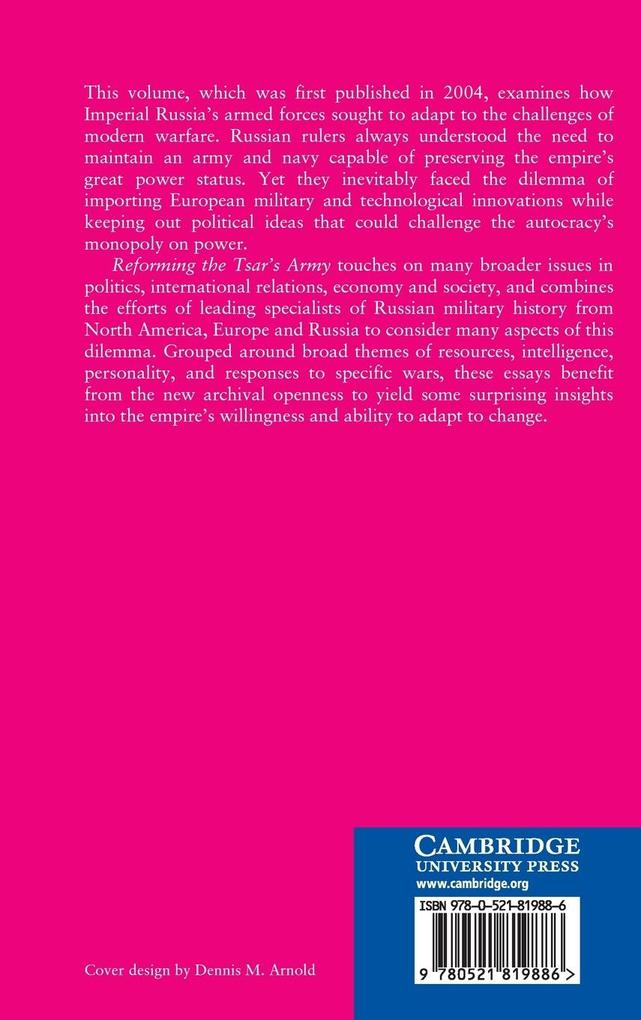
Zustellung: Mi, 16.07. - Sa, 19.07.
Versand in 7 Tagen
VersandkostenfreiBestellen & in Filiale abholen:
Examines how Imperial Russia's armed forces sought to adapt to the challenges of modern warfare.
Inhaltsverzeichnis
Part I. Population, Resources, and War: 1. Universal service reform: conception to implementation, 1873-83 Robert F. Baumann; 2. The limits of reform: the multiethnic imperial army confronts Nationalism, 1874-1917 Mark von Hagen; 3. Forerunners of the Komsomol: scouting in imperial Russia David R. Jones; 4. Strategic railroads and the dilemmas of modernization Jacob W. Kipp; Part II. Intelligence and Knowledge: 5. The Russian military press in the reform era Willis Brooks; 6. Reforming military intelligence David Schimmelpenninck van der Oye; 7. Russian military attaché s and the wars of the 1860s Gudrun Persson; 8. Building foundations for effective intelligence: military geography and statistics in Russian perspective, 1845-1905 David Alan Rich; Part III. Responses to Specific Wars: 9. Russian military reform in the age of Napoleon Frederick W. Kagan; 10. The caucasus factor in Russian military reform Dmitrii I. Oleinikov; 11. The offensive revisited: Russian preparation for future war, 1906-14 Bruce W. Menning; 12. The challenge of reforming imperial Russian general staff education, 1905-9 John W. Steinberg; Part IV. Personalities: 13. The politics of command in the army of Peter the Great Paul Bushkovitch; 14. G. A. Potemkin and A. I. Chernyshev: two dimensions of reform and Russia's military frontier Bruce W. Menning; 15. Miliutin contra Moltke: Russia's refusal to accept a Prussian-style general staff Oleg Airapetov; Part V. Conclusions: 16. The military and imperial Russian history David M. McDonald; 17. Imperial Russia and military history Dennis Showalter; 18. Russian military history and the present William E. Odom.
Produktdetails
Erscheinungsdatum
02. April 2015
Sprache
englisch
Seitenanzahl
376
Herausgegeben von
David Schimmelpenninck Van Der Oye, Bruce W. Menning
Verlag/Hersteller
Produktart
gebunden
Gewicht
760 g
Größe (L/B/H)
235/157/27 mm
ISBN
9780521819886
Entdecken Sie mehr
Pressestimmen
"A collection of essays on various aspects of Russian military reform, by some of the most notable scholars in the field. The 18 essays are grouped into five broad categories, covering national resources, intelligence and education, specific wars and campaigns, person-alities, and some broad conclusions. Of particular value to the serious student of Russian military history, some of the essays are likely to be useful for persons interested in particular aspects of the practice of war, such as conscription, or the Napoleonic Wars." - The NYMAS Review
Bewertungen
0 Bewertungen
Es wurden noch keine Bewertungen abgegeben. Schreiben Sie die erste Bewertung zu "Reforming the Tsar's Army" und helfen Sie damit anderen bei der Kaufentscheidung.










